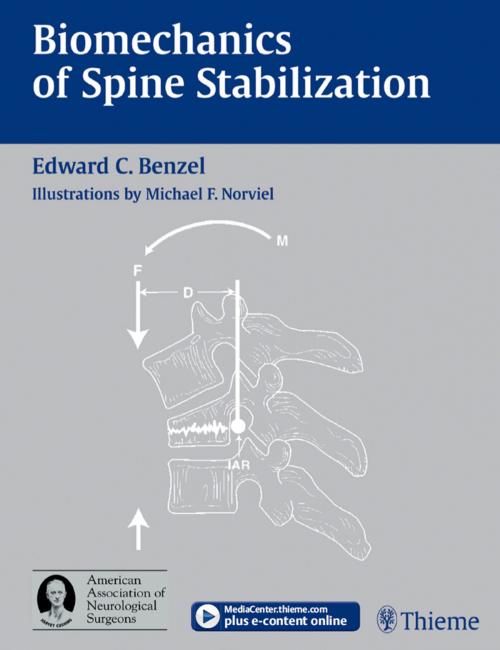Biomechanics of Spine Stabilization
Nonfiction, Health & Well Being, Medical, Surgery, Neurosurgery, Specialties, Orthopedics| Author: | ISBN: | 9781604067378 | |
| Publisher: | Thieme | Publication: | January 1, 2011 |
| Imprint: | TNY | Language: | English |
| Author: | |
| ISBN: | 9781604067378 |
| Publisher: | Thieme |
| Publication: | January 1, 2011 |
| Imprint: | TNY |
| Language: | English |
Over the past two decades there have been major advances in the treatment of spinal disorders including anterior decompression of the neural structures as well as various forms of spinal stabilization by utilization of implants. These changes primarily reflect the development of better techniques of diagnosis and anesthesia, as well as new fusion procedures that are often supplemented with instrumentation. Biomechanics of Spine Stabilization bridges the gap that has existed between the physics of biomechanical research and the clinical arena. The book helps surgeons to plan treatments for the injured spine based on sound biomechanical principles - principles that will influence the surgeon's choice for the surgical approach, type of fusion and type of instrumentation. Biomechanics of Spine Stabilization begins with the essentials, proceeds gradually toward the development of an understanding of biomechanical principles, and, finally, provides a basis for clinical decision-making. These features make it a cover-to-cover must-read for anyone who is involved with the care of a patient with an unstable spine. Chocked full of illustrations, Biomechanics of Spine Stabilization includes: -Physical principles and kinematics -Segmental motion, stability and instability -Spine and neural element pathology -Surgical approaches and spinal fusion -Spinal instrumentation: General principles -Spinal instrumentation constructs: biomechanical attributes and clinical applications -Non-operative spinal stabilization -Special concepts and concerns -CD-ROM containing illustrations from book to create mental images of critical anatomical, biomechanical and clinical points
Over the past two decades there have been major advances in the treatment of spinal disorders including anterior decompression of the neural structures as well as various forms of spinal stabilization by utilization of implants. These changes primarily reflect the development of better techniques of diagnosis and anesthesia, as well as new fusion procedures that are often supplemented with instrumentation. Biomechanics of Spine Stabilization bridges the gap that has existed between the physics of biomechanical research and the clinical arena. The book helps surgeons to plan treatments for the injured spine based on sound biomechanical principles - principles that will influence the surgeon's choice for the surgical approach, type of fusion and type of instrumentation. Biomechanics of Spine Stabilization begins with the essentials, proceeds gradually toward the development of an understanding of biomechanical principles, and, finally, provides a basis for clinical decision-making. These features make it a cover-to-cover must-read for anyone who is involved with the care of a patient with an unstable spine. Chocked full of illustrations, Biomechanics of Spine Stabilization includes: -Physical principles and kinematics -Segmental motion, stability and instability -Spine and neural element pathology -Surgical approaches and spinal fusion -Spinal instrumentation: General principles -Spinal instrumentation constructs: biomechanical attributes and clinical applications -Non-operative spinal stabilization -Special concepts and concerns -CD-ROM containing illustrations from book to create mental images of critical anatomical, biomechanical and clinical points















